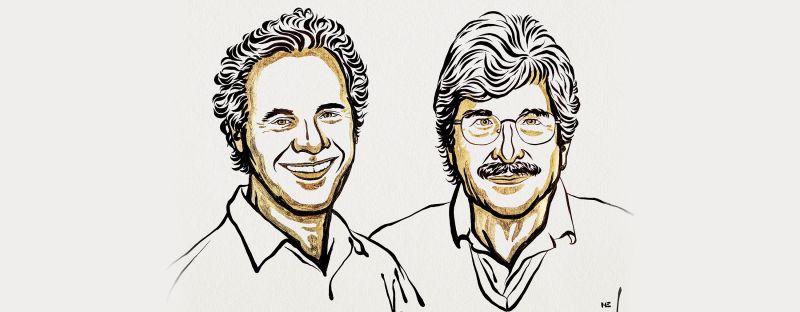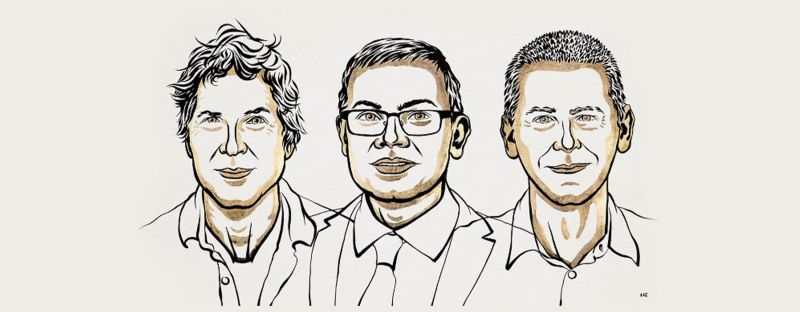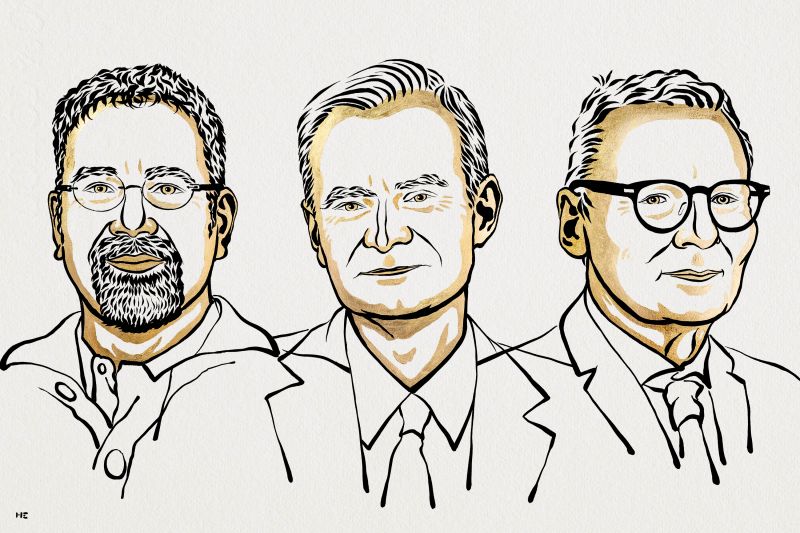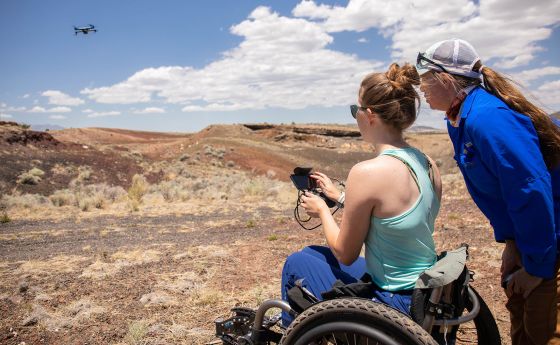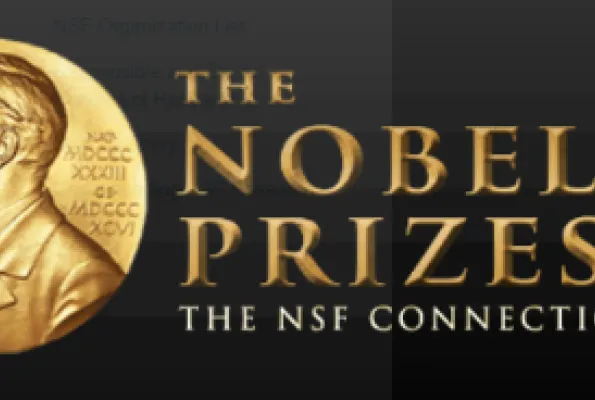
NSF continues strong legacy with Nobel Prize winners
Every year, the Nobel Prize announcements provide an opportunity to celebrate the transformative achievements that push the boundaries of human knowledge. The 2024 Nobel laureates exemplify that spirit of scientific exploration and innovation, and I am proud to say that the U.S. National Science Foundation has played a pivotal role in the journeys of many of this year's winners in the science categories — physiology or medicine, physics, chemistry and economic sciences. This year's accomplishments build upon a legacy of NSF investments that has resulted in 268 Nobel laureates having received NSF support during their careers.
The mission of NSF is to fund bold research that addresses society's most critical challenges. The discoveries honored this year reflect not only individual ingenuity and insights but also the power of NSF's long-term investments and how they have contributed to scientific revolutions. By investing in early-stage, high-risk research, NSF has catalyzed innovations in entire fields, from artificial intelligence to medicine, agriculture to materials science. Those investments in fundamental science are crucial, and the success of this year's laureates underscores how such support often leads to transformative breakthroughs.
Not only did several of this year's Nobel laureates receive NSF support for their career-defining research, but they received it early in their research journeys. This was not the first year in which this combination has occurred, and we are proud that NSF has recognized talent so early. Often, groundbreaking discoveries are a testament to NSF's commitment to funding visionary ideas with the potential to transform fields and improve lives. These laureates exemplify how long-term investments can create lasting impacts that empower humanity and shape our shared future.
The 2024 Nobel Prize in physiology or medicine was awarded to Victor Ambros (University of Massachusetts Medical School) and Gary Ruvkun (Massachusetts General Hospital and Harvard Medical School) for their discovery of microRNA and its role in post-transcriptional gene regulation. MicroRNAs (miRNAs) are small molecules that regulate gene activity and control how cells develop and function. Before their discovery, gene expression was believed to be primarily controlled by proteins called transcription factors. NSF supported Ambros' groundbreaking identification of the first miRNA, lin-4. Together with Ruvkun's work on understanding how miRNAs, including lin-4, impact gene expression, this research unveiled a new dimension of genetic regulation, offering insights into how cells develop into specialized types, such as muscle or skin cells. This fundamental discovery has practical applications across fields, including medicine and agriculture, where manipulating gene expression can lead to new treatments and improved crop yields.
The 2024 Nobel Prize in physics
John J. Hopfield (Princeton University) and Geoffrey E. Hinton (University of Toronto) received the 2024 Nobel Prize in physics for their foundational contributions to machine learning through artificial neural networks. NSF supported Hopfield and Hinton's pioneering work in the 1980s which helped create the foundation for the AI revolution of today. For example, Hopfield created neural networks based on fundamental concepts and methods from physics, providing a new way to process information. Hinton expanded on this work by developing the Boltzmann machine, a model that applies statistical physics to train neural networks, enabling them to generate solutions and recognize patterns. Those methods became the foundation for modern AI, powering technologies now used to accelerate not only scientific discovery but so many human endeavors. NSF's investments in physics, cognitive psychology, neuroscience and other fields have been pivotal in driving such advancements.
The Nobel Prize in chemistry was shared between David Baker (University of Washington and Howard Hughes Medical Institute) for his work on protein structure design and Demis Hassabis and John M. Jumper (Google DeepMind) for their advancements in protein structure prediction. Proteins, the "chemical tools" of life, are crucial for countless biological functions, and understanding their structure is key to many scientific advancements. Baker's NSF-supported research went beyond studying natural proteins; he developed methods to design entirely new proteins using computational tools. His work utilizing the NSF-funded Protein Data Bank has led to the Rosetta Commons suite of tools and innovations with applications in medicine, nanotechnology and agriculture. NSF has continuously supported Baker's career since his Young Investigator award in 1994. The interdisciplinary nature of the work and the potential impact of protein design is exemplified by the broad nature of NSF support received by Baker that has come from the NSF directorates for Biological Sciences, Engineering, Mathematical and Physical Sciences, and Computer and Information Science and Engineering. Hassabis and Jumper's groundbreaking AI model, AlphaFold2, solved the long-standing challenge of predicting protein structures from amino acid sequences, leveraging the same Protein Data Bank that has been supported by NSF for decades. AlphaFold2's success is transforming fields such as drug development, enzyme design and environmental solutions, proving the power of applying AI to biology. Those discoveries demonstrate the critical importance of NSF's investment in infrastructure and data systems, which store, provide access to, and facilitate experimental testing of vast data sets, enabling advances such as AI models that determine protein structures and computational designs of proteins not found in nature.
Daron Acemoglu and Simon Johnson (Massachusetts Institute of Technology) and James A. Robinson (University of Chicago) were awarded the Nobel Prize in economics – formally the Sveriges Riksbank Prize in Economic Sciences in Memory of Alfred Nobel – for their studies on how institutions shape prosperity. Supported by NSF for more than two decades, their work revealed how political and economic institutions impact a nation's development and prosperity. They showed that historical factors such as governance choices rooted in colonization can influence the economic growth of entire nations. Grounded in both formal mathematical models and data from historic records, their research has practical implications for addressing inequality, fostering sustainable development and guiding democratic progress. That achievement underscores NSF's ongoing commitment to social sciences. As NSF director, I am proud to note that NSF has supported at least one economics laureate every year since 1997 and 71of the 96 Nobels in this category, highlighting our role in advancing groundbreaking research on how societies, organizations and economies function that improves people's quality of life.
NSF congratulates these extraordinary scientists for their achievements, which not only advance our understanding of the world but also drive the application of these discoveries to address some of society's most pressing challenges. These breakthroughs are a direct result of long-term investment in fundamental science, which forms the backbone of innovation across countless fields. Without a commitment to exploring the basic principles that underlie our universe, many of the transformative technologies we now take for granted might not exist. It is essential that we, as a society, continue to support and fund foundational research. Such investment not only fuels scientific advances but also paves the way for solutions to future challenges we have yet to imagine. Moreover, these laureates have trained and mentored numerous students and early-career researchers, inspiring a whole new generation of STEM talent. By empowering the next generation, we ensure that this legacy of excellence continues, shaping a future where science and technology work for the benefit of all.

